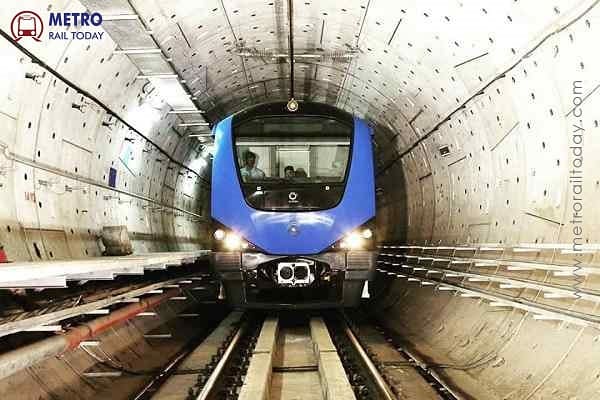 CMRL achieves second Tunnel Breakthrough at Thirumayilai for Chennai Metro Phase 2 Corridor 4
CMRL achieves second Tunnel Breakthrough at Thirumayilai for Chennai Metro Phase 2 Corridor 4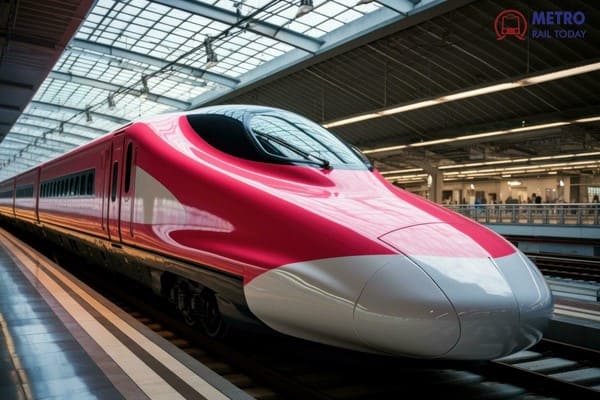 NHSRCL invites Single Tender from BEML for Bullet Train Rolling Stock Package
NHSRCL invites Single Tender from BEML for Bullet Train Rolling Stock Package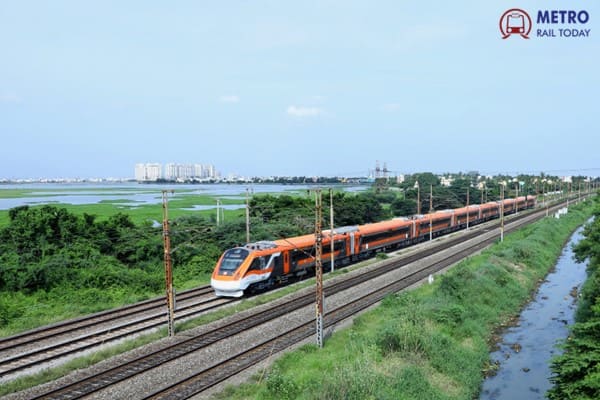 Railway Minister reviews progress of Ahmedabad–Dholera Semi High-Speed Rail Project
Railway Minister reviews progress of Ahmedabad–Dholera Semi High-Speed Rail Project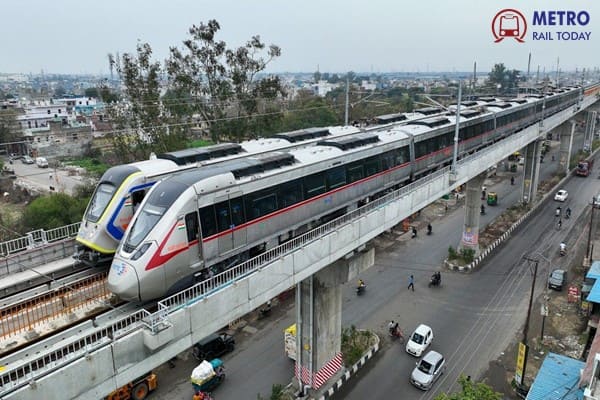 National Planning Group reviews key Rail & Metro projects under PM GatiShakti
National Planning Group reviews key Rail & Metro projects under PM GatiShakti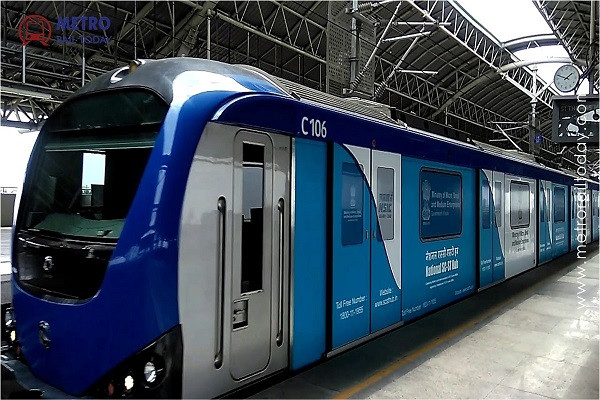 CMRS approves Driverless Metro Operations on first stretch of Chennai Metro Phase 2 Corridor 4
CMRS approves Driverless Metro Operations on first stretch of Chennai Metro Phase 2 Corridor 4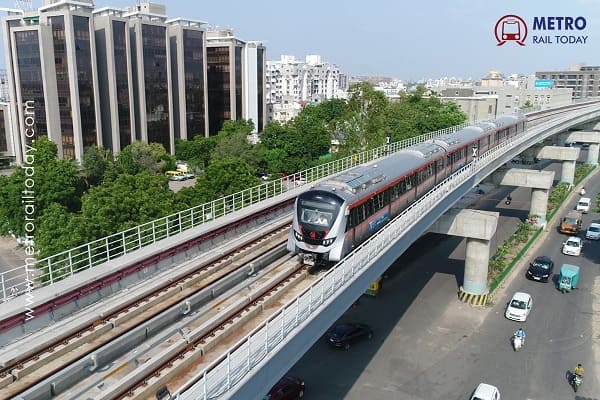 J Kumar Infraprojects completes Final Tunnel Breakthrough for Surat Metro Phase 1 Project
J Kumar Infraprojects completes Final Tunnel Breakthrough for Surat Metro Phase 1 Project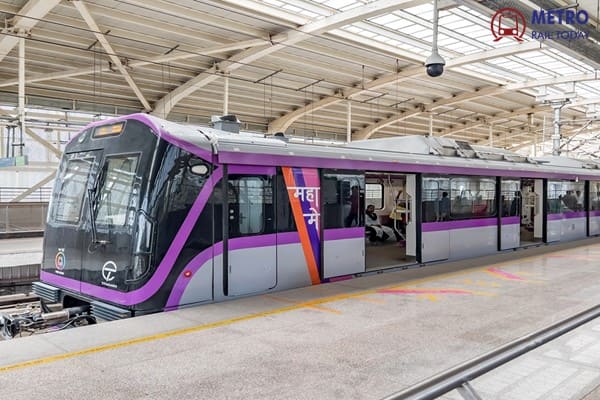 Apurvakriti Infrastructure awarded Ballastless Track Contract for Pune Metro Reach-1 Extension
Apurvakriti Infrastructure awarded Ballastless Track Contract for Pune Metro Reach-1 Extension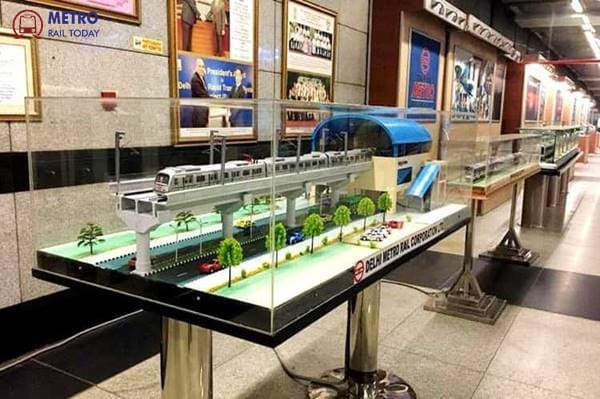 SAM India Builtwell bags first ₹222.76 Crore Civil Contract for Delhi Metro Phase V
SAM India Builtwell bags first ₹222.76 Crore Civil Contract for Delhi Metro Phase V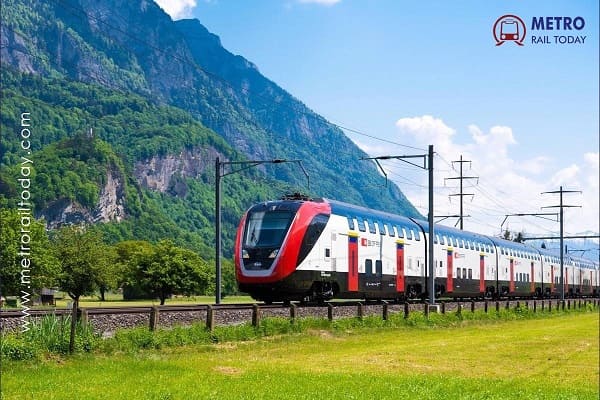 HRIDC conducts Investors Pre-Bid Meeting for Haryana Orbital Rail Corridor
HRIDC conducts Investors Pre-Bid Meeting for Haryana Orbital Rail Corridor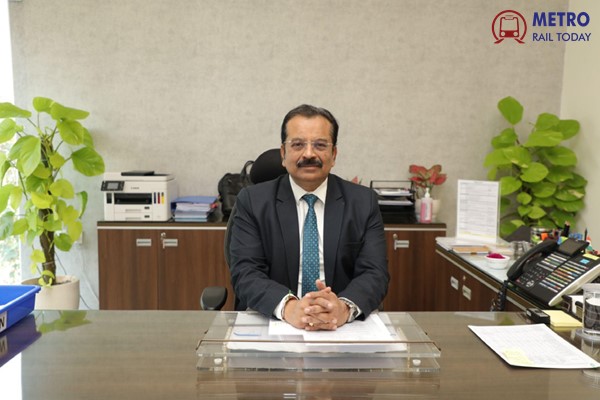 NCRTC Chief Shalabh Goel appointed as General Manager of Central Railway
NCRTC Chief Shalabh Goel appointed as General Manager of Central Railway
Fifth Mumbai Monorail incident in 3 months raises safety concerns amid CBTC upgrade trials
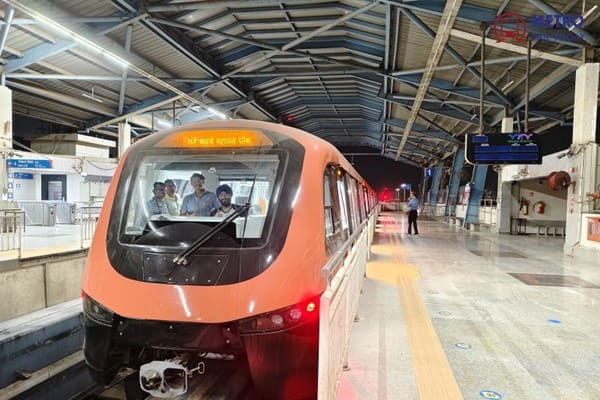
Mumbai, India (Metro Rail Today): India’s only operational monorail system in Mumbai has suffered yet another setback — the fifth incident in just three months — after a coach tilted dangerously off the beam near Wadala–GTB Nagar during a trial run. During a routine signalling trial at Wadala depot, an empty Mumbai Monorail coach derailed and hit a beam, leaving three staffers injured, including the train captain. Fortunately, no passengers were onboard, and only minor injuries were reported among technical personnel. While MMMOCL termed the mishap a “minor incident” with no operational impact, visuals from the scene showed significant damage to the coach undergear and structure.
The mishap occurred while engineers were conducting tests of the Communication-Based Train Control (CBTC) signalling system — a modern upgrade intended to make the network more efficient and safer. However, officials have revealed that a communication glitch in the switching system caused the track beam to shift while the train was moving, leading to the tilt.
This latest episode has once again spotlighted the operational challenges and systemic lapses plaguing the Mumbai Monorail — a project once celebrated as a symbol of modern urban transport.
Preliminary Probe Points to Human and Systemic Errors
A preliminary investigation by Maha Mumbai Metro Operation Corporation Ltd. (MMMOCL) — the agency responsible for the monorail’s operation and maintenance — suggests that the derailment was caused by a combination of human error and system incompatibility.
The incident took place around 9:25 am on Wednesday near the Wadala car depot during a trial run toward Sant Gadge Maharaj Chowk. Officials said that the newly built rake, supplied by Medha Servo Drives, was running in a hybrid mode due to the transition between old and new signalling systems.
The older fleet still relies on traditional signalling, while the new trains are equipped with the CBTC system, which enables real-time communication between trains and control centers. During the trial, the CBTC system was temporarily deactivated, and the train was operating manually when someone at the control centre accidentally activated the track switch, leading to derailment.
“Only one person — the train pilot — was authorized to be inside the train. The second individual onboard was not authorized and will likely face disciplinary action,” said an MMMOCL official.
MMMOCL has convened a high-level meeting at its Bandra Kurla Complex office, where it was concluded that the incident stemmed from both procedural lapses and technical misalignment during the switchover from manual to CBTC mode.
Damaged Rake and Restoration Efforts
Following the incident, the damaged monorail coach body was moved back to the Wadala depot, while two bogies (the wheel assemblies) remained stuck on the elevated section overnight. One of the wheels had entangled with the third rail, which powers the train, causing additional damage.
By Thursday morning, recovery teams had safely removed the bogies and begun repairing the affected section to prepare for future trial runs.
Officials also indicated that Medha Servo Drives, the Hyderabad-based manufacturer responsible for the new rakes, may face financial penalties and could be required to replace the damaged equipment free of cost.
Repeated Failures Raise Broader Questions
This derailment is part of a worrying pattern for the Mumbai Monorail. In recent months, the system has reported multiple technical failures, including:
-
Power outages disrupting service
-
Signalling malfunctions
-
Abrupt halts during operations
-
Communication lapses during trial runs
While MMMOCL insists that these are controlled trials and not operational breakdowns, experts argue that such recurring issues point to deep-rooted maintenance, training, and compatibility problems.
Industry observers emphasize that Mumbai’s monorail system, despite its potential, continues to suffer from fragmented oversight and inconsistent technology upgrades.
“The repeated technical incidents in Mumbai’s monorail highlight the urgent need for stronger safety protocols, transparent audits, and coordinated system integration,” said Mrs. Mamta Shah, MD & CEO of Urban Infra Group. “Modernizing transport systems must go hand-in-hand with robust governance and accountability mechanisms. With proper planning, testing, and communication between stakeholders, Mumbai’s monorail can still emerge as a reliable part of the city’s mobility ecosystem.”
The Road Ahead
Officials confirm that MMMOCL and the Mumbai Metropolitan Region Development Authority (MMRDA) are working to upgrade the entire signalling and control network. The CBTC system, once fully operational, will improve real-time monitoring, automate train spacing, and enhance overall safety.
However, the current phase of testing underscores the complexity of integrating new technology into an older infrastructure. Experts have called for third-party safety audits, revised trial protocols, and stricter coordination between control-room staff and on-ground engineers before resuming public operations.
Until then, the Mumbai Monorail — India’s first and only such system — remains a cautionary tale of urban transport innovation overshadowed by executional challenges.




